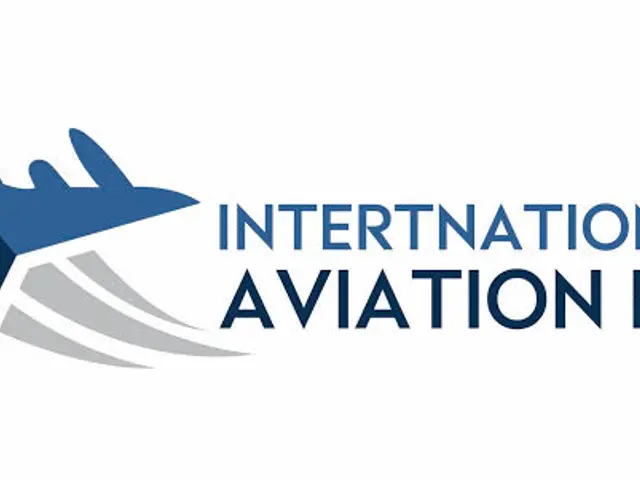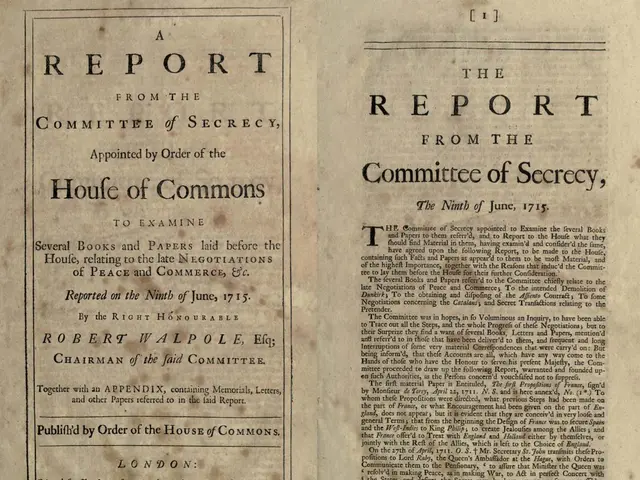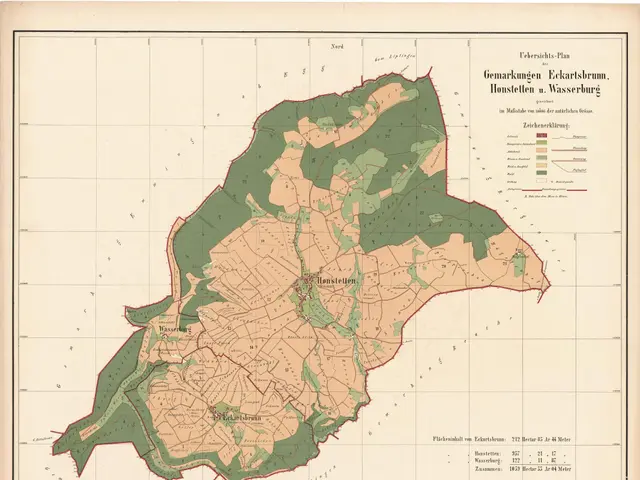Jamie Dimon Warns of Possible US Recession: Uncertainties Persist with Tariffs
JPMorgan Chase CEO Jamie Dimon indicates that a recession remains possible, stating, "I wouldn't rule it out at this moment."
EJ Antoni, Prosperity's senior fellow, dissects the Republican tax bill's implications and U.S. economy's state on Varney & Co.
JPMorgan Chase CEO Jamie Dimon fell a grim note on Thursday, cautioning that a recession possibility lingers, courtesy of ongoing turbulence from the Trump administration's tariffs. At the firm's annual Global Markets Conference, Dimon hinted that although he's optimistic, a recession could still rear its head.
“Let's hope we dodge it, but better safe than sorry, it's still on the table,” Dimon cautioned during a Bloomberg Television interview. If a recession does occur, he conjectured, its magnitude and duration remain unclear.
Dimon's remarks follow JPMorgan economists slashing their recession likelihood from a staggering 60% to below 50%, post the temporary China tariff truce. In a previous interview, Dimon expressed that recession was the inevitable US economy fate.
*JPMORGAN CUTS RECESSION CHANCES AFTER TARIFF TRUCE WITH CHINA*
Despite the temporary tariff reprieve, JPMorgan CEO Jamie Dimon maintains a recession possibility hovering over the US economy. (Credit: Al Drago/Bloomberg via Getty Images)
Dimon pinpointed that the unpredictability stemming from tariffs has led some clients to shy away from investments as economic volatility prevails. The US-China trade negotiations, if successful, could lower tariffs on Chinese goods from the current 145% to 30%, and US exports from 125% to 20%.
“I think it's wise to pause and have an open dialogue,” Dimon said, advocating for negotiations as essential to crafting a long-term deal.
*BIG BANK BOSSES SPEAK OUT ON TRUMP'S TARIFFS: 'UNPRECISE ELBOWING'
Crippling import taxes, known as tariffs, levied on China could stifle domestic investments, according to Dimon. "The endeavor could see a decrease in US investments, making Jack Daniel's buyers less enthusiastic."
Despite the tariff-induced uncertainties, Dimon reaffirmed the United States' status as the world's best investment destination. "America's still the place to park your cash," he stressed.
*JOIN FOX BUSINESS ON THE GO BY CLICKING HERE
With tariffs intensifying trade tensions, the International Monetary Fund anticipates a significant US economic slowdown, projecting growth at 1.8% for 2025. Although this doesn't indicate a recession, the IMF suggests an increased probability of recession reaching approximately 40% - a rise from its October levels[1].
Moreover, Moody's Analytics Chief Economist Mark Zandi explains that the high probability of a global recession in 2025 stems from escalating trade tensions and tariffs[3]. While this global context doesn't confine their impact solely to the US, it underscores broader economic patterns that could potentially sway the US economy.
Trade tensions, such as those between the US and China, can lead to destructive demand shocks, causing economic slowdowns and weakening price pressures. While tariffs are a concern, they may not act as the prime driver of recession risk[1][3]. Consequently, warns Dimon, it’s wise to stay vigilant.
- JPMorgan Chase CEO Jamie Dimon, during a Bloomberg Television interview, cautioned that the possibility of a US recession still remains, despite the temporary tariff truce with China.
- Dimon has pointed out that the unpredictability caused by tariffs has led some clients to hesitate in making investments, as economic volatility persists.
- Despite the tariff-induced uncertainties, Dimon maintains that the United States remains the world's best destination for investment.





